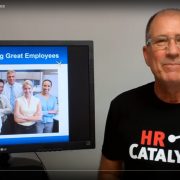I sense there is a lot of fear and depression going on. And…it can’t be ignored.
While I have never entertained the thought of suicide, that’s not been the case for so many others. And… it’s been hitting close to home the last few years.
A 13-year old boy, who was the younger brother of my son’s friend, committed suicide last month because he got himself in trouble and feared the judgement that would come with it. This was a sweet boy who had many a sleep over at our house.
Four years ago, my dear cousin committed suicide leaving his wife and two lovely daughters behind. Last year, two of my oldest son’s best friends committed suicide, one of whom also left two children behind.
Where I live in Coronado we have a bridge that is famous for its suicides. It is second in the country behind the Golden State Bridge for suicide attempts. You can’t be in Coronado and not be aware of the problem. 18 people have jumped since January. A few days ago my wife told me the mother of a 16-year-old award winning student we know jumped off the bridge.
I live in a military town and know many soldiers, including many SEALS. Their rate of suicide is well known but seldom publicized. Many of them are struggling with PTSD problems. My friend Dr. Bart Billings has been working with many of these young men and women, trying to get them off of killer medications.
Recently one company I know, under significant financial pressures, had two employees commit suicide within a few months. You can’t ignore that.
I recently spoke to a group Chief Financial Officers for construction firms and they have a program going on to address the suicide problem in the construction industry. http://www.cfma.org/news/content.cfm?ItemNumber=4570
My son told me the Netflix series 13 Reasons Why which has caused a great deal of buzz on campus. It’s about a girl who commits suicide and gets back at other people by telling them how they contributed to her death. Based on the book
http://www.thirteenreasonswhy.com/
Recently the media focused on a 20 year old woman convicted for bullying her boyfriend to kill himself. The messages she sent him were chilling. https://www.washingtonpost.com/news/true-crime/wp/2017/06/16/shes-accused-of-pushing-him-to-suicide-now-a-judge-has-decided-her-fate/?utm_term=.5288fb6ec40c
What do we do with all of this? How do we make sense of it? I know I can’t ignore it when it strikes so close to home. I have to talk to my wife and son about how they are going this experience. HR and other executives may want to recognize its impact at work.
I did some digging. Starting with the data about suicide and then looking for resources for families and companies to help to deal with it.
According to DoSomething.org:
- Nearly 30,000 Americans commit suicide every year.
- Suicide is the 3rd leading cause of death for 15 to 24-year-olds and 2nd for 24 to 35-year-olds.
- On average, 1 person commits suicide every 16.2 minutes.
- Each suicide intimately affects at least 6 other people.
- About 2/3 of people who complete suicide are depressed at the time of their deaths. Depression that is untreated, undiagnosed, or ineffectively treated is the number 1 cause of suicide.
- There is 1 suicide for every 25 attempted suicides.
- Males make up 79% of all suicides, while women are more prone to having suicidal thoughts.
- Over 50% of all suicides are completed with a firearm.
Hundreds of people decide to commit suicide at work every year. An example from OSHA:
- Employee Is Killed After Jumping From Roof
- Worker Drives Off Bridge And Drowns
- Commits Suicide Soon After Arriving At Work.
- Employees Are Killed In A Murder Suicide
- Dies From A Self-Inflicted Gun Shot.
- Employee Commits Suicide In Hospital Restroom
- Worker Commits Suicide Using Sodium Azide
- Water Treatment Worker Commits Suicide
- Employee Commits Suicide By Jumping Off Parking Structure
- Employee Shoots And Kills Self In Shed
- Jumps From Elevated Platform And Is Killed
- Employee Commits Suicide At Work By Hanging
What I’ve learned is that while there are commonalities, the stories behind suicide are as unique as life itself. Sometimes it is a result of a chemical imbalance in the brain caused naturally or due to prescription medications or drug abuse. It could be due to a fatal diagnosis or intolerable pain. Other times it is a traumatic event and other times it’s fear, hopelessness and failed expectations.
In all circumstances… they saw no way out. They saw no path to peace other than to end their lives.
There are a ton of emotions triggered by a suicide including shock, anger, grief, despair, confusion, rejection, the need to understand “why”, physical collapse or even the thought of suicide itself.
Acknowledge these feelings, don’t pretend they don’t exist. It is OK to question them, examine them and discuss them. And it is OK to ask for help. You are not alone.
Here are some excellent resources:





